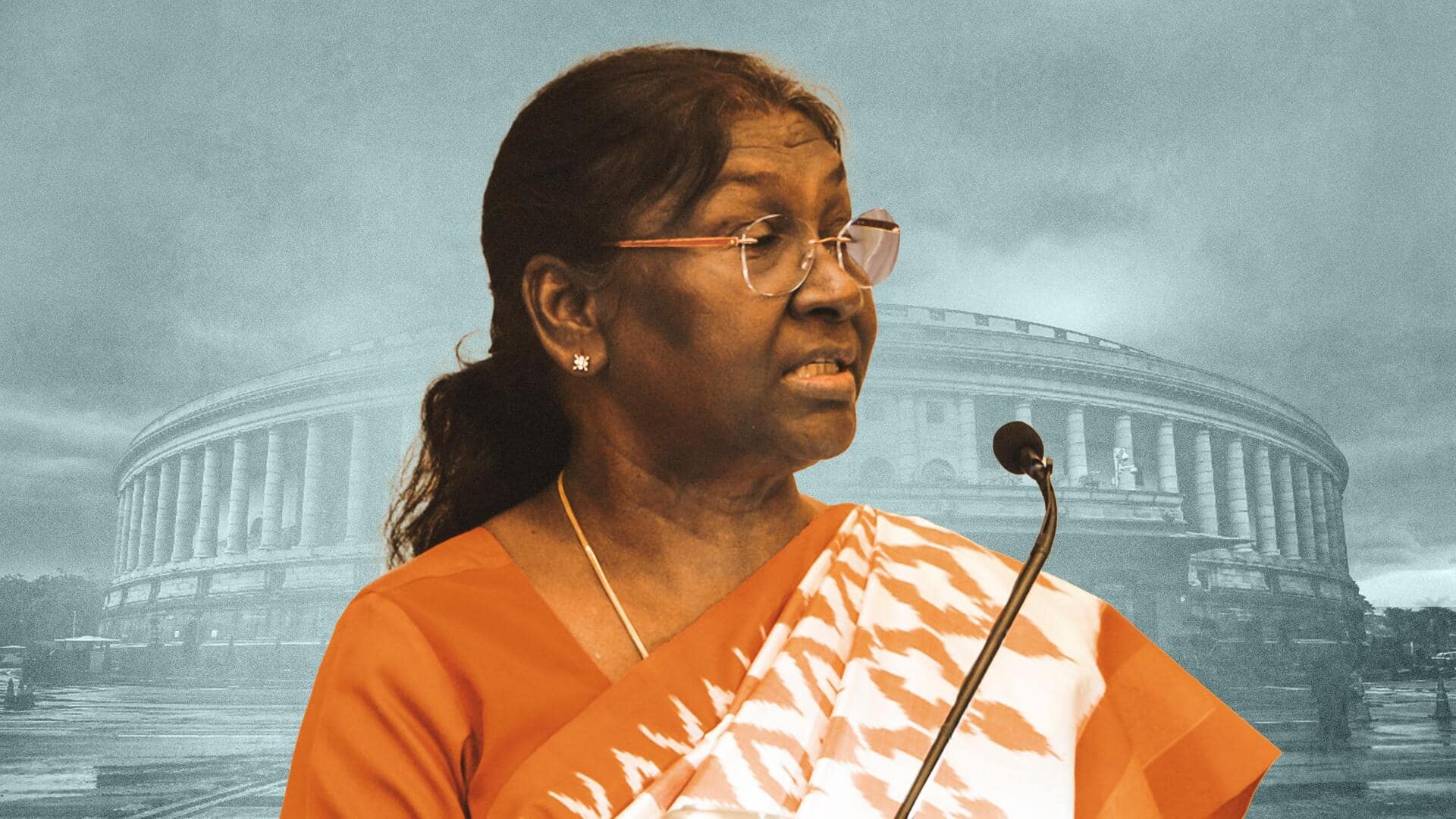
President Murmu approves Delhi services bill, DPDP bill, 2 others
What's the story
President Droupadi Murmu signed four bills—passed during the fiery Monsoon Session of the Parliament—into law on Saturday.
Among them are the Government of National Capital Territory of Delhi (Amendment) Bill and the Digital Personal Data Protection Bill, which faced opposition resistance.
Other bills approved by Murmu are the Registration of Births and Deaths (Amendment) Bill and the Jan Vishwas (Amendment of Provisions) Bill.
Context
Why does this story matter?
The Delhi services bill faced stiff resistance from the opposition in the Parliament following a campaign to gain support by the Aam Aadmi Party (AAP) supremo and Delhi Chief Minister Arvind Kejriwal. It allows the Centre to have control over Delhi's bureaucracy.
Similarly, the opposition also protested against the DPDP Bill.
Notably, the bills were tabled in Parliament amid a deadlock over Manipur violence.
Delhi Services Bill
Shah defended Delhi bill, opposition MPs walked out
When the Delhi services bill was put to a vote in the Parliament, the opposition MPs walked out.
Union Home Minister Amit Shah defended the government's bill, which allegedly contradicts a Supreme Court verdict stating the elected government can control Delhi's bureaucracy.
He claimed the court also ruled that the Parliament has the authority to make legislation for the National Capital Territory of Delhi.
DPDP Bill
DPDP Bill sailed through amid opposition sloganeering
Like the Delhi bill, the DPDP Bill, too, was tabled amid opposition protests. It sailed through and was passed in both Houses by voice vote amid sloganeering by opposition members over the Manipur issue.
The opposition alleged the bill would turn India into a surveillance state, considering it would allow the processing of personal data without consent in several instances, thereby violating fundamental rights.
Editors Guild
DPDP Bill will allow surveillance of citizens: Editors Guild
The Editors Guild of India (EGI) also expressed serious concerns over certain provisions of the DPDP Bill, saying they can impact press freedom.
The law creates an enabling framework for the surveillance of citizens, including journalists and their sources, it said.
Under it, the EGI said, the government could ask any public or private entity (data fiduciary) to furnish the personal information of citizens.
Facts
About Registration of Births and Deaths (Amendment) Bill
The Registration of Births and Deaths (Amendment) Bill, which has also been approved by Murmu, paves the way for enabling digital birth certificates to become the only conclusive age proof for various purposes.
It has provisions to allow the use of the birth certificate as proof for admission to educational institutions, issuing driving licenses, marriage registration, government job appointments, and availing food welfare schemes.
Details
Jan Vishwas (Amendment of Provisions) Act to decriminalize minor offenses
The president also assented to the Jan Vishwas (Amendment of Provisions) Bill that seeks to promote ease of business by decriminalizing minor offenses through amendments to 183 provisions of as many as 42 acts.
The law converts numerous fines to penalties so that court prosecution is not required to administer punishments. It also withdraws imprisonment as a punishment for several offenses.